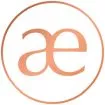A lot of people have commented on the recently issued decision in consolidated cases G 1/22 and G 2/22 from the Enlarged Board of Appeal of the European Patent Office (EBA). As reported elsewhere, the answers to these two questions:
- Does the EPC confer jurisdiction on the EPO to determine whether a party validly claims to be a successor in title as referred to in Article 87(1)(b) EPC?
- If question 1 is answered to the affirmative
Can a party B validly rely on the priority right claimed in a PCT-application for the purpose of claiming priority rights under Article 87(1) EPC
in the case where
1) a PCT-application designates party A as applicant for the US only and party B as applicant for other designated States, including regional European patent protection and
2) the PCT-application claims priority from an earlier patent application that designates party A as the applicant and
3) the priority claimed in the PCT-application is in compliance with Article 4 of the Paris Convention?
Given by the EBA are:
- The European Patent Office is competent to assess whether a party is entitled to claim priority under Article 87(1) EPC.
There is a rebuttable presumption under the autonomous law of the EPC that the applicant claiming priority in accordance with Article 88(1) EPC and the corresponding Implementing Regulations is entitled to claim priority.
- The rebuttable presumption also applies in situations where the European patent application derives from a PCT application and/or where the priority applicant(s) are not identical with the subsequent applicant(s).
In a situation where a PCT application is jointly filed by parties A and B, (i) designating party A for one or more designated States and party B for one or more other designated States, and (ii) claiming priority from an earlier patent application designating party A as the applicant, the joint filing implies an agreement between parties A and B allowing party B to rely on the priority, unless there are substantial factual indications to the contrary.
But what does it mean?
The background is that opponents at the EPO began ca. 2010 attacking priority for strictly formal reasons, stating that a formal assignment of the right to claim priority was missing in cases, where the EP application claiming priority and the priority application had different applicants indicated, and that the patent proprietor had the burden of proving that he indeed had the right to claim the priority by being "successor in title" of the priority applicant. The typical scenario is one where the priority application is a US provisional application indicating the inventor(s) as applicant(s), and wherein the subsequent PCT application indicates their employer as applicant for the EP designation.
In some cases, the consequence of such attacks, which are purely speculative, was the revocation of the corresponding patent due to prior art published during the period between the filing of the priority application and the filing of the subsequent application (so-called "intermediate prior art"). In those cases, the Boards of Appeal found that the burden of proof, following normal rules for apportioning the burden of proof, lay with the patent proprietor for the entitlement to claim priority.
The situation was furthermore a bit messy because there was divergence between decisions from the Boards of Appeal as to which national law(s) should be used to make the assessment of whether a transfer of the priority right had taken place before the filing of the subsequent application. It was also not entirely clear what constituted sufficient proof in the absence of a written agreement.
We are therefore of the opinion that perhaps the strongest statement in the EBA's decision is given in point 110 of the Reasons for the Decision:
The rebuttable presumption involves the reversal of the burden of proof, i.e. the party challenging the subsequent applicant's entitlement to priority has to prove that this entitlement is missing. If there is a strong presumption, the hurdle for rebutting it is higher than in the case of a weak presumption (see T 63/06, Reasons, point 3.2 for the rebuttal of the presumption of sufficiency of disclosure). The presumption that the subsequent applicant is entitled to the priority right is a strong presumption under normal circumstances since the other priority requirements (which establish the basis for the presumption of priority entitlement) can usually only be fulfilled with the consent and even cooperation of the priority applicant (see above points 104 ff). The party challenging the entitlement to priority can thus not just raise speculative doubts but must demonstrate that specific facts support serious doubts about the subsequent applicant's entitlement to priority.
In other words, the EBA reversed the burden of proof compared to the normal rules and, perhaps more importantly, compared to some previous decisions from the Boards of Appeal. This was based on the presumption that, under the prevailing, practical circumstances for claiming priority, some measure of cooperation from the priority right holder is needed. This is because priority must be claimed before unrelated third parties have the chance to learn of the priority application and its contents, and a copy of the priority application must be filed.
In our opinion, the EBA merely apply common sense to what had developed into a risk-free, speculative attack with a potential enormous upside for opponents. And they do it with a firm foundation in the EPC. The EBA did not rely on national law, only the EPC, for arriving at their conclusions.
The EBA have therefore put patent proprietors' minds at ease, especially those patent proprietors who may not be as much on top of their assignments as they should have been. We predict that very few oppositions in the future, if any, will be decided based on a lack of entitlement to priority, even though the presumption in favour of the patent proprietor can in principle be rebutted with suitable evidence.
An interesting follow-up question, in view of the recent inauguration of the Unified Patent Court (UPC), is whether they will follow the EBA. In view of Article 24 of the UPC Agreement, it seems likely that the UPC should be in agreement with the EBA in applying the EPC for the assessment of entitlement to priority without also referring to national law.
The content of this article is intended to provide a general guide to the subject matter. Specialist advice should be sought about your specific circumstances.

